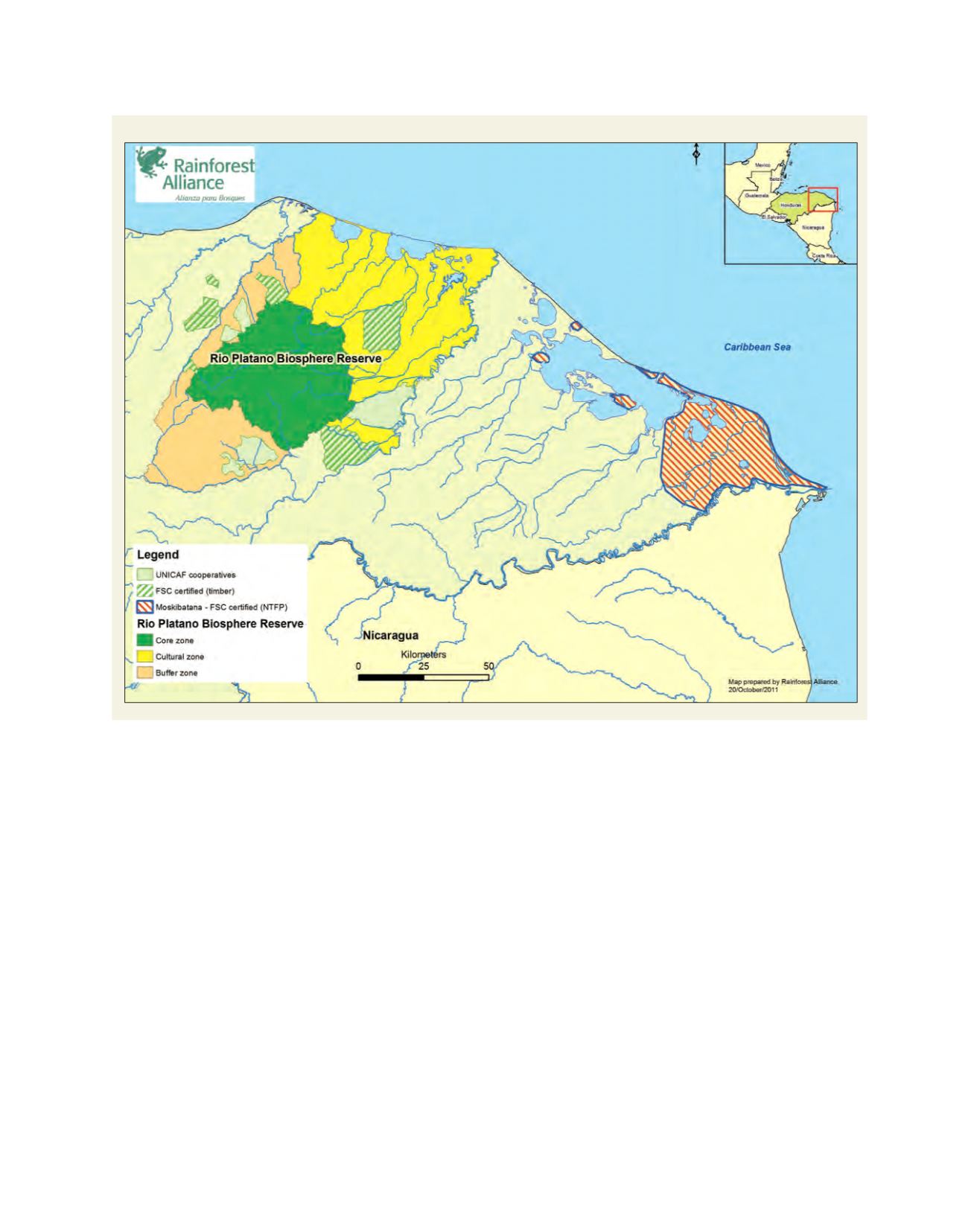

[
] 206
ship. “We set up our new enterprise with the goal of taking greater
control over our business and expanding our markets,” says Serrano
Vásquez, Moskibatana’s field coordinator. “With continued support,
we know this can be achieved.”
But as with the UNICAF cooperatives, threats are increasing, even
in this region far from the agricultural frontier. In spite of their
decades-old campaign for permanent common property title over
customary lands – consistent with ILO Convention No. 169 on
Indigenous and Tribal Peoples – communities in this part of the
Moskitia still lack clear tenure, endangering the survival of tradi-
tional practices that conserve forest resources. Although a new
national forest law grants indigenous groups rights to forests on
lands they traditionally inhabit, the extent of these rights has yet to
be made clear. In the meantime, as in the Río Plátano, illegal land
deals for forest conversion are becoming increasingly commonplace.
Documentation of management practices and organization of a
collective legal entity is aiding community efforts to assert their
rights to customary lands and to begin building sustainable enter-
prises. But ultimately, achieving successful community forestry
requires building local capacities in forest management, institutional
governance and business development – the same skills that will
enable indigenous communities to exercise their rights,
chart a locally-driven course for sustainable develop-
ment, and confront the threats to their livelihoods and
resources.
Expanding local forest enterprises to halt the
process of deforestation
UNICAF and Moskibatana have shown that organ-
izing community forest enterprises and complying
with sustainability standards can lead to increased
incomes, forest conservation and improved forest
rights. Although the deforestation threat is powerful
and mounting, community leaders are attempting to
counter it through increased transparency and more
equitable benefit sharing, making sustainable forestry
a viable alternative to forest conversion. Together
with increased Government efforts to crack down on
illegal activity, expansion of the community forest
enterprise model offers the best hope to halt deforesta-
tion, empower locally-owned enterprise and secure the
survival of the Moskitia region’s natural forests.
Community forest operations in the Moskitia region, Honduras
Source: Charlie Watson
















